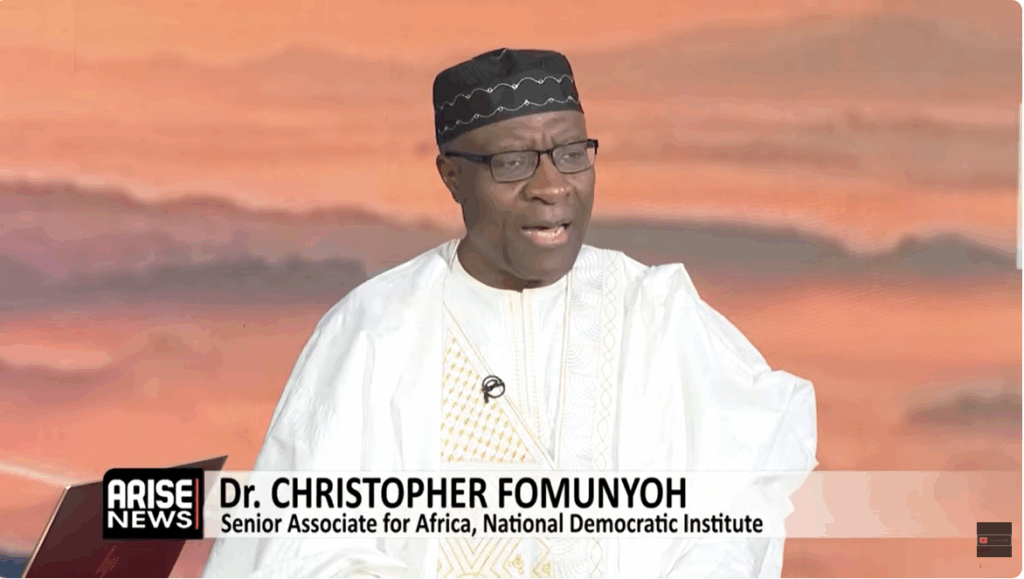
Dr. Christopher Fomunyoh who is the Africa Senior Associate for the National Democratic Institute has recently commented on Cameroon’s political trajectory, offering a deeply critical assessment of the country’s 2025 electoral crisis and what it reveals about the broader state of democracy across Africa. Speaking on Arise News in Nigeria, Dr. Fomunyoh argued emphatically that “what happened in Cameroon is not a democracy,” stressing that the situation should alarm anyone concerned with the future of governance on the continent.
According to him, the failure of institutions, the erosion of accountability, and the blatant disregard for public expectation reflect a democratic order in freefall. He lamented the growing frustration among Africans — especially the youth, whose aspirations continue to be ignored. Drawing attention to the stark demographic reality, he remarked on the absurdity of a “93-year-old individual seeking another seven years to serve as President in a country where the median age is 19.” For Fomunyoh, this generational mismatch symbolizes the deep disconnect between leadership and citizenry.
He further underscored that a significant portion of the Cameroonian population does not believe President Paul Biya won the election, noting that “there are figures out there that show Issa Tchiroma garnered more votes on election day.” Such claims, he said, are part of the reason why “the story on Cameroon’s election hasn’t ended quite yet,” as questions over legitimacy continue to grow, both domestically and internationally. In his analysis, Biya faces an almost insurmountable challenge in trying to reclaim credibility after an election marred by controversy, mistrust, and allegations of manipulation.
Dr. Fomunyoh also provided a blunt description of Biya’s decades-long grip on power, asserting that the president has survived through a system rooted in “corruption and sheer brutality.” He accused the regime of weaponizing state institutions against political opponents, explaining that Biya has relied on “patronage networks and the instrumentalization of the justice system and security services” to suppress dissent. This repression, he noted, has driven many opposition leaders either into prison or into exile, further weakening the democratic fabric of the nation.
Beyond Cameroon, Dr. Fomunyoh warned that the crisis is emblematic of a much larger continental trend where democratic decline is becoming normalized. He stressed that Africa cannot afford a future where elections merely legitimize authoritarian continuity rather than serve as a true expression of the people’s will. The growing disillusionment among Africa’s youth, the continent’s largest demographic group — is particularly dangerous, as governance systems increasingly fail to reflect their aspirations.
He did not fail to comment on the conflicts in the English speaking regions of the country which he believes as reported by the Norwegian Refugee Council are under-reported.

